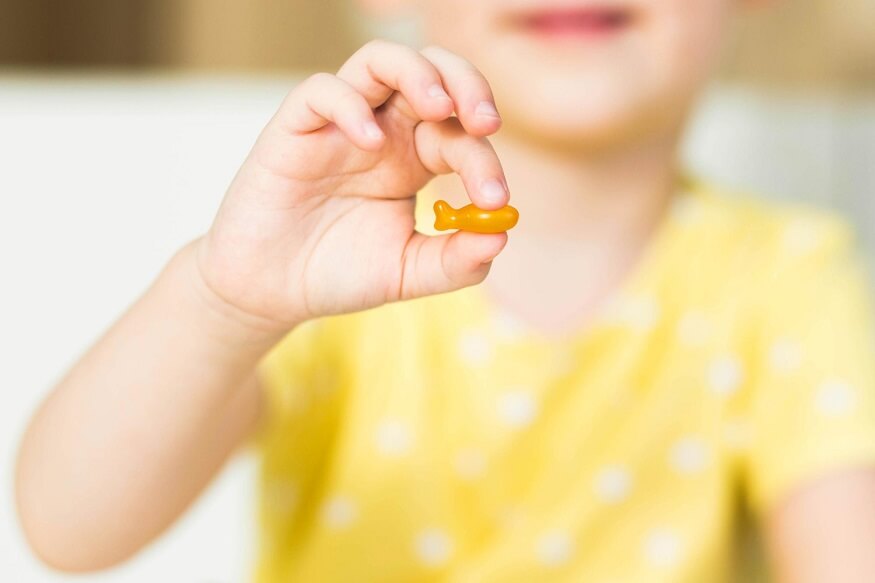Parents always want the best for their toddlers. They feed them the best foods to help them be super healthy and grow up strong. However, sometimes, kids need a little extra something to make sure they are getting everything they need for their optimal growth.
Dietary supplements become important in this situation.
Toddlers grow fast, so they need lots of good nutrients like proteins, vitamins, and minerals to stay healthy. In this blog, we will talk about the dietary supplements that kids may need, and how to pick the best one.
Benefits of dietary supplements for toddlers
Children who consume a balanced diet, consisting of grains, lean meat, vegetables, fruit, and dairy products, often meet their necessary nutritional requirements. However, not all toddlers may consume a broad spectrum of foods due to selective eating habits, leaving them deficient in certain nutrients. In such situations, dietary supplements can serve a beneficial purpose.
Parents could supplement essential nutrients, such as Vitamins A, C, and D and Omega-3 fatty acids, that may be lacking in the toddler’s diet. For toddlers with chronic medical conditions like food allergies or gastrointestinal disorders, dietary supplements may provide useful nutritional support. If a doctor thinks a toddler is underweight, they may prescribe dietary supplements.
Also Read: Discover the Nutritional Benefits of Nuts for Children
Types of dietary supplements
1) Multivitamins: Multivitamins are the most common supplements, offering a wide spectrum of vitamins and minerals. They can compensate for the occasional nutritional inadequacy, though consuming them with meals is advisable for better absorption. The essential vitamins and minerals required include Vitamins A, B, C, D, E, K and folate. Minerals include calcium, iodine, iron and zinc. The best way for your toddler to get these vitamins and minerals is by eating foods from the following 5 food groups:
- Vegetables and legumes
- Fruits
- Cereals and grain foods
- Protein foods
- Dairy or dairy alternatives
Vitamin A is important for eyesight, healthy skin, growth, development and good immunity. Toddlers can get their dose of Vitamin A from leafy green vegetables like spinach and kale, orange fruit and vegetables like carrots, pumpkin, sweet potatoes and apricots, liver, oily fish like salmon and tuna, and eggs, butter, margarine and full-fat milk.
Vitamin B1 is another vital nutrient that helps release energy from foods and supports proper nervous system and muscle function. It can be found in wholegrain foods, fish, meat, and yeast extracts.
Essential vitamins such as B2, B3, and B6 play a crucial role in energy release and numerous physiological processes. Key food sources of these vital vitamins encompass mushrooms, almonds, fortified cereals, meat, milk, beans, peanuts, fruits, nuts, and whole grain products.
2) Iron: Iron deficiency is common among toddlers, with severe deficiency leading to anaemia. Fortified cereals and meat are primary sources, but if the toddler’s diet lacks these, an iron supplement may be required.
Iron supplements for toddlers are often recommended by paediatricians to support their growth and development. Iron contributes to various processes such as carrying oxygen, supporting the immune system, and fostering mental growth. However, some toddlers, especially those with restricted diets for picky eaters, may not get enough iron from their diet, leading to iron deficiency, the most common nutritional deficiency in children globally.
To bridge this nutritional gap, iron supplements are provided. A balanced dosage often varies between 7 to 15 milligrams per day depending on the child’s age and unique nutritional needs.
3) Vitamin D: Vitamin D plays a crucial role in bone health, and deficiency can lead to rickets. Toddlers who have limited sun exposure or dairy intake might need a Vitamin D supplement. Toddlers require between 600 to 1,000 IU of Vitamin D daily.
Supplements can help meet this quota, especially for children on a dairy-free diet or with darker skin tones, who are at higher risk for deficiency. It is advisable to consult a healthcare professional before making this addition to your toddler’s diet to establish a proper dosage and to monitor for any potential side effects, which are rare but can include nausea or constipation. There are small amounts of Vitamin D available in mushrooms grown outdoors or in UV light, oily fish, fish liver oils, egg yolks, butter and margarine.
Also Read: Top 10 Vitamin D Rich Foods to Add to Your Kids Daily Diet
4) Omega-3 fatty acids: Toddlers might also benefit from omega-3 fatty acids, crucial for brain development. Regular intake of fatty fish provides sufficient Omega-3, but toddlers averse to fish might need a supplement. Dietary sources of omega-3 include fish, walnuts, chia seeds, and flaxseeds. However, toddlers may not always consume these foods due either to fussy eating habits or potential allergy concerns, making supplementation a potential option.
Studies have shown that omega-3 fatty acids improve children’s attention, memory, and brain development. Omega 3 also helps in reducing inflammation in children.
Also Read: Food Poisoning in Children: Causes, Symptoms and Treatment
Selecting Appropriate Supplements
A paediatrician’s guidance is vital in determining the need for dietary supplements. They assess the toddler’s diet, growth chart, and health situation before recommending any supplements. Dietary supplements should never replace a balanced and varied diet. Overreliance might deprive toddlers of other essential nutrients available from different food groups.
Excessive dosage can also be harmful, and in some instances, fatal. For instance, high doses of Iron can cause gastroenteritis, liver damage, and even cardiovascular collapse.
While nutrient-dense foods should be the primary source of vitamins and minerals for toddlers, dietary supplements can play a supportive role. Supplementation should be based on a proven nutrient deficiency and under the guidance of a healthcare professional.
While dietary supplements may help support toddlers’ growth, however, they can never replace a well-rounded, healthy diet.










